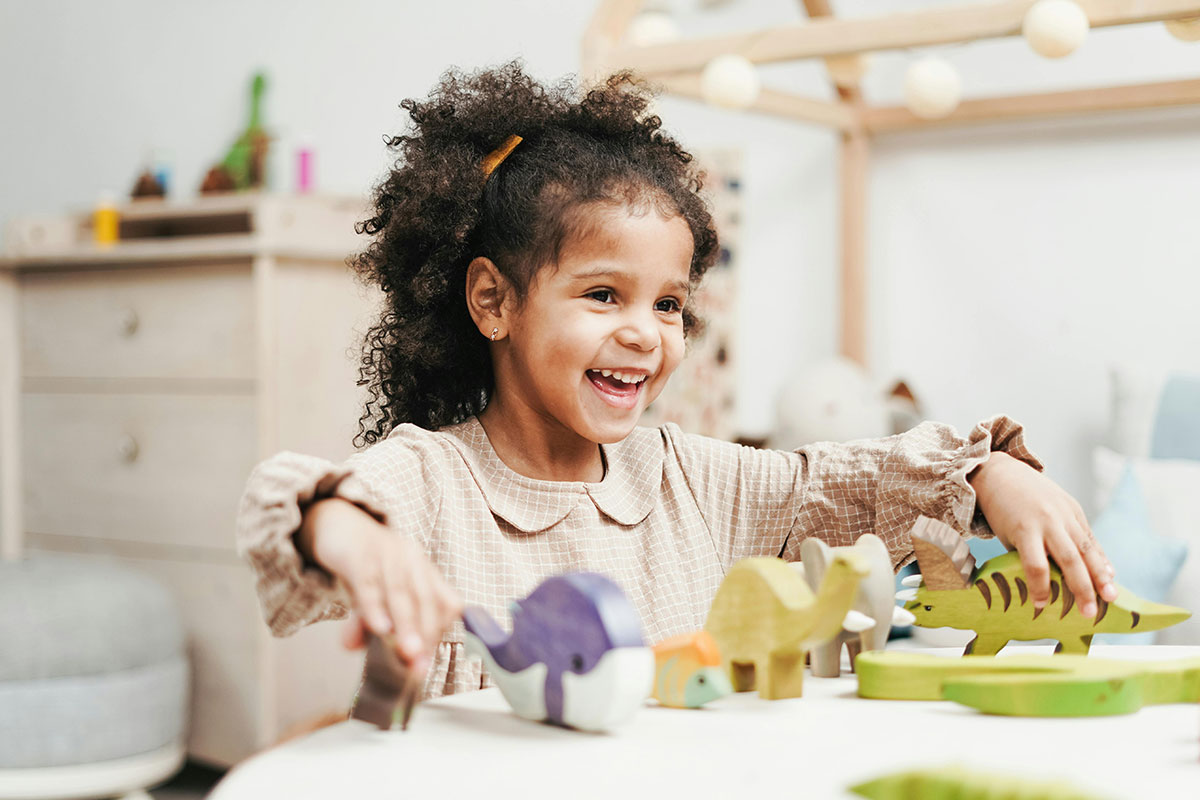If you’ve ever been told by a small human that you’re “doing it wrong” when you join in their make-believe game, you’ll know that play is serious stuff.
In fact, if I had a pound for every time a parent told me, “I feel guilty that we’re not doing enough educational activities at home,” I could probably retire to a seaside hut stocked entirely with Duplo and biscuit tins.
Here’s the thing: play is education. It just doesn’t always look like it. And the science is absolutely clear, play is not a frivolous extra, but a vital ingredient in healthy child development.
The Science Bit (Without the Jargon)
Neuroscientists have shown that play lights up multiple areas of a child’s brain at once. While adults might separate “learning” and “fun” into neat categories, children’s brains don’t work like that. In play, they’re practising problem-solving, developing language, experimenting with social rules, and learning to regulate emotions, all while building neural pathways that will serve them for life.
A 2024 review by the University of Cambridge found that play-based learning supports both academic outcomes and emotional resilience, particularly in the early years. The researchers even noted that children who engaged in regular, varied play were better able to adapt to change, something many of us wish we could bottle and sell.
Different Types of Play and Why They Matter
- Physical play – From climbing frames to impromptu living-room dance parties, movement-based play strengthens not only muscles and coordination but also attention span and mental focus.
- Pretend play – Dressing up as a vet, a dragon, or a shopkeeper allows children to explore empathy, narrative skills, and problem-solving in a safe space.
- Rule-based play – Board games and playground games help children learn patience, turn-taking, and coping with losing (a skill some adults are still working on…).
- Creative play – Painting, building with Lego, or constructing elaborate cardboard forts foster innovation, flexible thinking, and persistence.
Theraplay: Bringing Play and Connection Together
Play isn’t just about fun, it’s also about connection. One approach I often use in my clinical work is Theraplay, which is designed to build attachment, trust, and joy between parent and child through structured, nurturing, and often very silly activities.
You don’t need a therapy room to try Theraplay-inspired moments at home. Here are a few simple activities to sprinkle into your week:
- Lotion Hands – Sit together and gently rub moisturiser into your child’s hands or arms, describing what you’re doing in a calm, soothing voice.
- Copycat Faces – Take turns making silly faces and copying each other exactly.
- Animal Races – Pick an animal and race each other moving like it (kangaroos, crabs, and penguins are personal favourites).
- Peek-a-Boo Reimagined – Hide behind a cushion and pop out with a funny noise; older children can guess which side you’ll appear from.
- Snack Picnic – Share a small snack on a blanket, feeding each other bites and making it playful.
- Build-a-Bridge Hug – Make a “bridge” with your arms, then close it around your child in a hug as they pass under.
- Bubble Chase – Blow bubbles and see how many your child can pop before they hit the floor.
These moments don’t need to be long—five to ten minutes is plenty. The key is that you’re fully present, following your child’s lead, and letting the focus be on joy rather than achievement.
Making Play Part of Everyday Life
Modern family life is busy, but play doesn’t have to mean carving out hours at a time. It can be as simple as:
- Ten minutes of “your choice” play after school.
- Turning chores into games—“I’ll race you to put the socks away!”
- A family walk where you make up silly backstories for the dogs you pass.
The magic isn’t in how polished the activity is, it’s in the shared attention and enjoyment. A short burst of genuine, engaged play is far more valuable than an hour of distracted half-participation.
A Final Word
In psychology, we sometimes call play “the work of childhood”. For children, the work and the play are one and the same. Through play, they learn about themselves, about others, and about the world. Whether it’s pretending to be a dragon, chasing bubbles in the garden, or having a two-minute giggle over who can make the silliest face, you are building their brain, their resilience, and your relationship together.
And if you end up drinking invisible tea from a tiny plastic cup, remember: you’re not just playing- you’re investing in your child’s emotional future. That’s serious business.

Get In Touch
For more information on how we can help you, please get in touch and an experienced member of our therapy team will answer any questions you may have about us or the services we offer.
Contact Us









